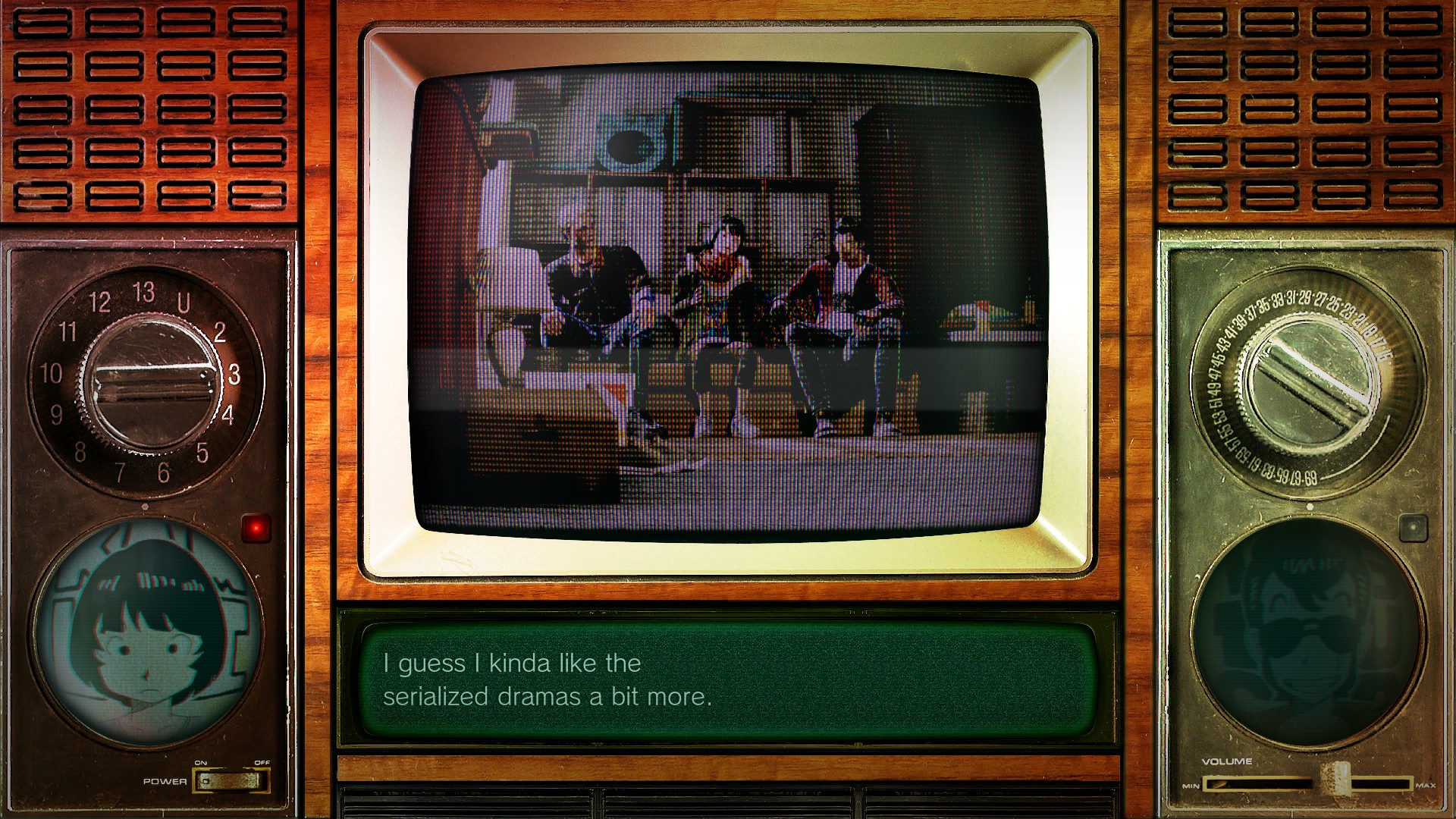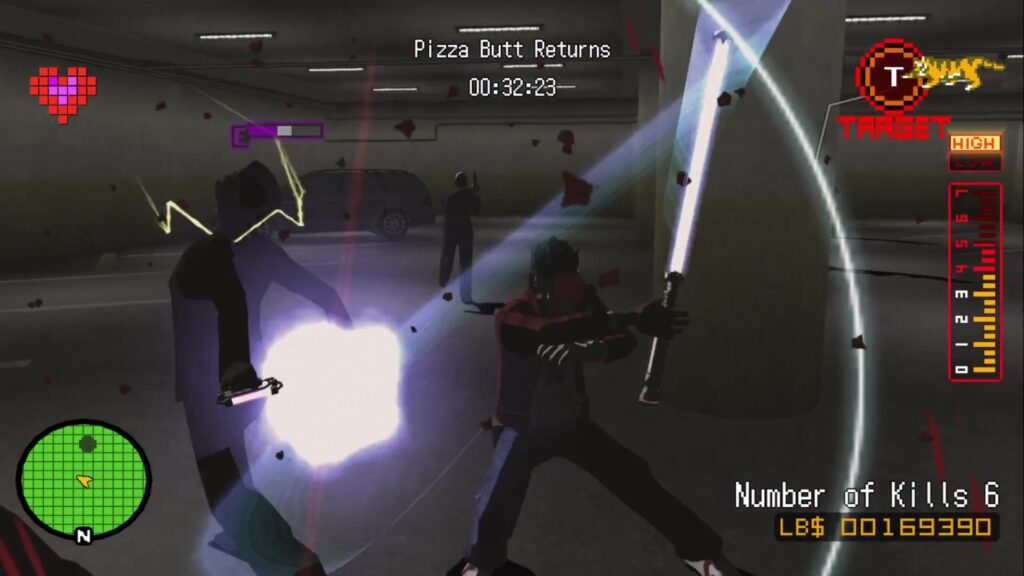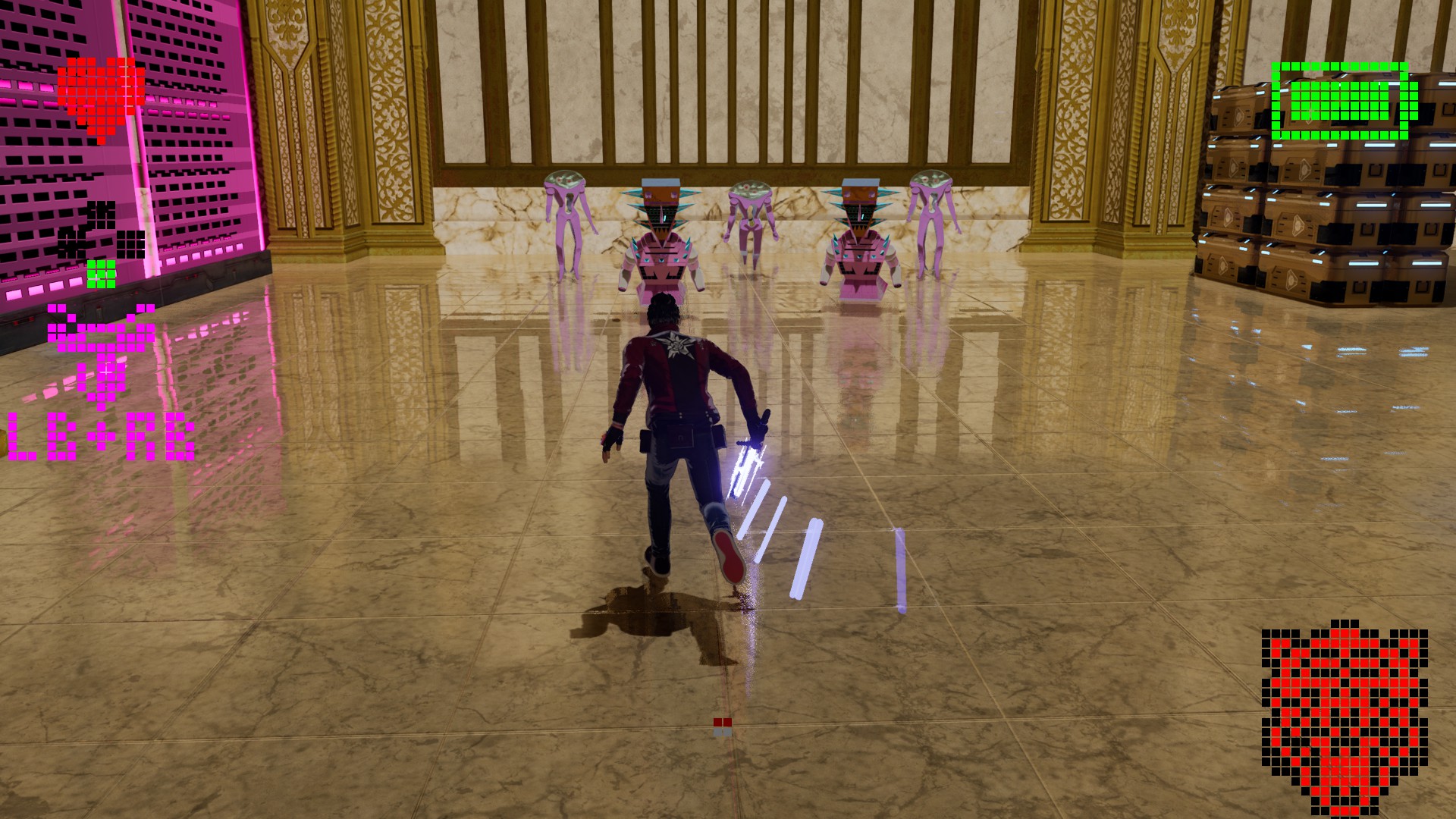The depreciation of Kamui continues. Where Uehara seeks light by his nature in The Silver Case, now he has to adapt to seeking light because of Travis’s advice. Instead of the ideal of perfection that inspired and animated all of Japan in 1999 whose mere presence causes supernatural changes in those around him, he is a friendly boy who likes burgers and hanging out. Though he also remains either oblivious or inhuman enough to imagine spending time with FU, a galactic conqueror, would be “kind of like going to a nice barbecue.”

On the one hand, these characterizations finally humanize the eternally erased, silenced, slandered victim. It took about twenty years, but no longer an abstraction, Kamui is a person again. He jokes about the fourth wall, goes bowling, gets drunk, watches TV dramas, drinks mango cola, and has a girlfriend he cares for. He can be friends with other people and act on his own initiative. In this sense, it is, after decades, genuine existence in the light of possibility to choose and to be a person, freedom like Yuuri and Seiji’s, and freedom from the oligarchs and poison of their ideology. But on the other hand, the role and significance of “Kamui” both as an in-universe figure and in the narrative have been trivialized to the point of comedy.
This is the result of inserting Travis Touchdown and Uehara Kamui into the same universe. Travis is explicitly stronger than Newtype Kamui: “You’re tough yourself, Trav. Too tough. It’s overwhelming.” While Uehara can evade FU’s attacks, this is consistent given that Travis can handle FU fine as well. The most exaggerated Format Kamui legend in “KamuiDrome” imagines him killing well under 100 people total, while Akira-Kamui and Tokio-Kamui kill one person each (assuming Sakamoto and not Akira shoots Rumi). Shimohira Ayame kills six people. In the comparatively grounded (!) Silver Case, these are substantial numbers, as they would be in reality. But if this is in the same world as Travis Touchdown, then Kamui’s “criminal power” means nothing.

The number of humans Travis transforms into mountains of severed heads and bisected torsos over No More Heroes and its first sequel matches the population of a small town. Each jokey mission to assassinate Pizza Butt employees (probably) features a higher kill count than the Silver Case. In The 25th Ward, the mass slaughter of deliverymen in “new world order” at least requires multiple highly trained killers operating simultaneously and demands considerable infrastructure to clean. In contrast, Travis is a random nerd who happens to buy a “beam katana” online. If he and Kamui exist together and not as characters in distinct genres, Kamui is an amateur. Forget the doubts about the efficacy of assassinating lone leaders—Travis could singlehandedly wipe out every last agent of the Kanto police state in the same way he and Badman wipe out the CIA. Yet instead of a pariah at the center of a vast dehumanizing conspiracy like Kamui, Ayame, and Emir, and instead of becoming a monster like Shiroyabu or Worso, Travis is allowed to be cool, funny, wise, popular, and even kind. Uehara compliments him as “a bit too good of a guy, really.”
